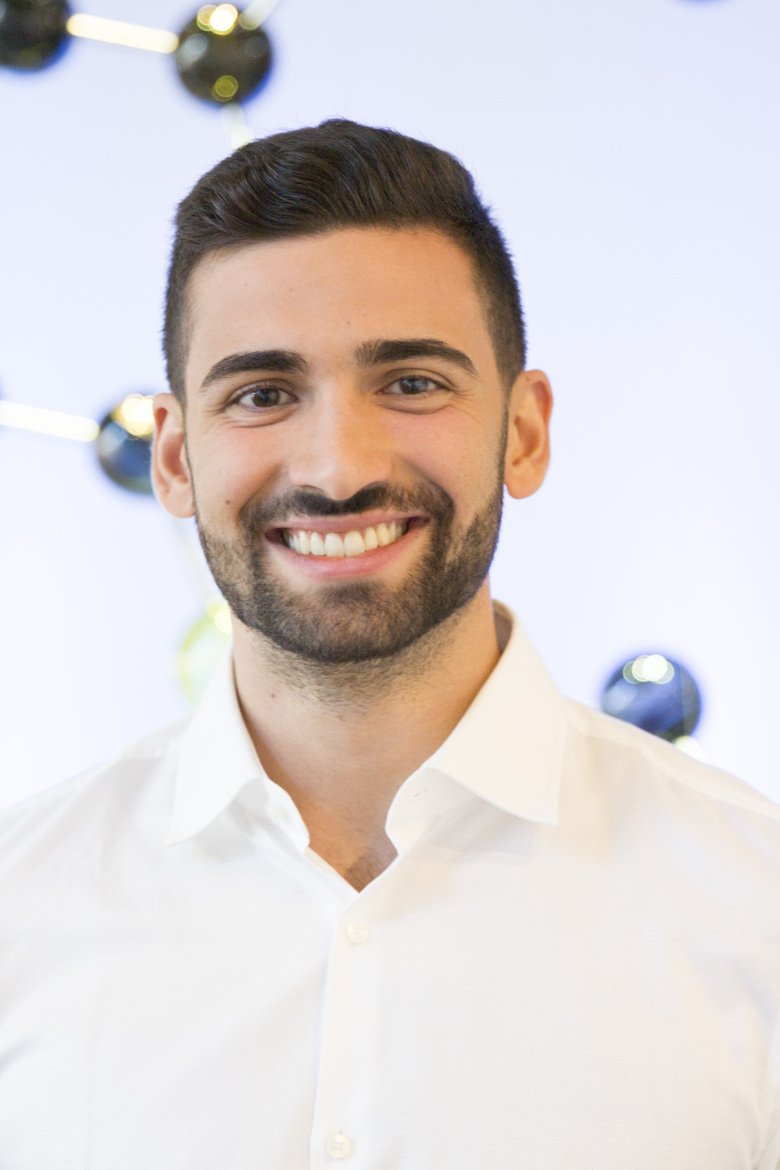Toxicology alumnus Achilleas finds his place in R&D
Name: Achilleas Fardellas
Degree: Master’s in Toxicology
Graduation year: 2018

Tell us your story!
Before Karolinska Institutet, I studied M.Sc. in Pharmacy at the University of Patras, and I carried out two research projects in Greece and Italy. I chose the Master’s Programme in Toxicology at KI because it is a highly regarded and top-ranked university. Additionally, it offers one of the oldest Toxicology M.Sc. in Europe, running for over 40 years which indicated to me that they have great know-how in the field.
KI offered me a different type of education, compared to my Pharmacy degree. There was a big focus in critical thinking, problem solving, writing reports and presenting work, rather than the knowledge- and detail-based education I was used to. This helped me become a more complete scientist, as I learned not only different drugs and toxic substances, but also how to integrate information and use it to make knowledge-based decisions.
Additionally, I am grateful for the opportunity to do my thesis at a lab at KI, working with top-notch scientists and being involved in high-quality scientific discoveries. One of my best memories during the Master’s programme was an educational trip in Northern Italy, part of the curriculum. We got to visit the joint research centre of the European Union and European Food Safety Authority, a great opportunity to appreciate how European research centres and authorities operate behind the scenes.
I was working as an R&D Graduate Scientist at AstraZeneca, as part of the R&D graduate programme, a two-year programme comprising three different eight-month placements across the R&D organisation. I found this opportunity through the CHaSE event 2017 in my last year, where I met representatives from AstraZeneca, and they introduced me to the programmes they offered.
My day to day work was quite flexible. As a graduate scientist, I was expected to meet my objectives on defined timelines. Yet, I could work at my own pace the way it suits me, and not in the 9.00 to 17.00 framed structure. In my line of work, I performed experiments that could be either “wet” lab or computer-based. When I was working in the laboratory, I spent half of my time executing assays and the other half I was planning or analysing the results, similarly to academia.
When I did computer-based experiments, I spent a lot of time in front of the computer, visualising, analysing and interpreting data, as well as forming hypotheses that other scientists could validate in “wet” lab experiments. I presented my findings to key stakeholders and helped them proceed with the drug project or research questions.
My education at KI helped me very much in two aspects: through the high-quality research training, I acquired the necessary tools to carefully design, execute and critically interpret the data I have generated. Secondly, the numerous presentations that we had at the masters helped me boost my confidence and develop solid presentation skills, allowing me to comfortably present my work on a weekly basis.
Also, I would say that the main takeaway was a meaningful exposure to a diverse and international environment. Being at KI, you interact with international students and researchers on a daily basis and hear about their own ideas, aspirations and experiences. It was through those interactions, that I got exposed to so many different perspectives which helped me recalibrate and redefine my own aspirations, something that in my previous university I didn’t have the chance to do. In a nutshell, if you keep an open mind, you will appreciate this diverse environment and develop yourself through it.
My short-term aspiration is to pursue a PhD. I came to realise, during my industrial experience, that a PhD will not only facilitate my development and minimise any limitations for my future career, but it would also transform me to a more ‘’mature’’ scientist altogether. After my doctoral education, my goal is to return to the industry to work on drug projects where I will have the opportunity to put the science where it matters the most, the patients.
What is your advice to students
The curriculum at Karolinska enables you to do a lot of extra work, besides your duties for the courses. I would advise everyone to try and have some fun, while gaining real work experience, through internships and extracurricular activities. I truly believe that this could prove to be the ticket to your future job, and not necessarily the education by itself.
